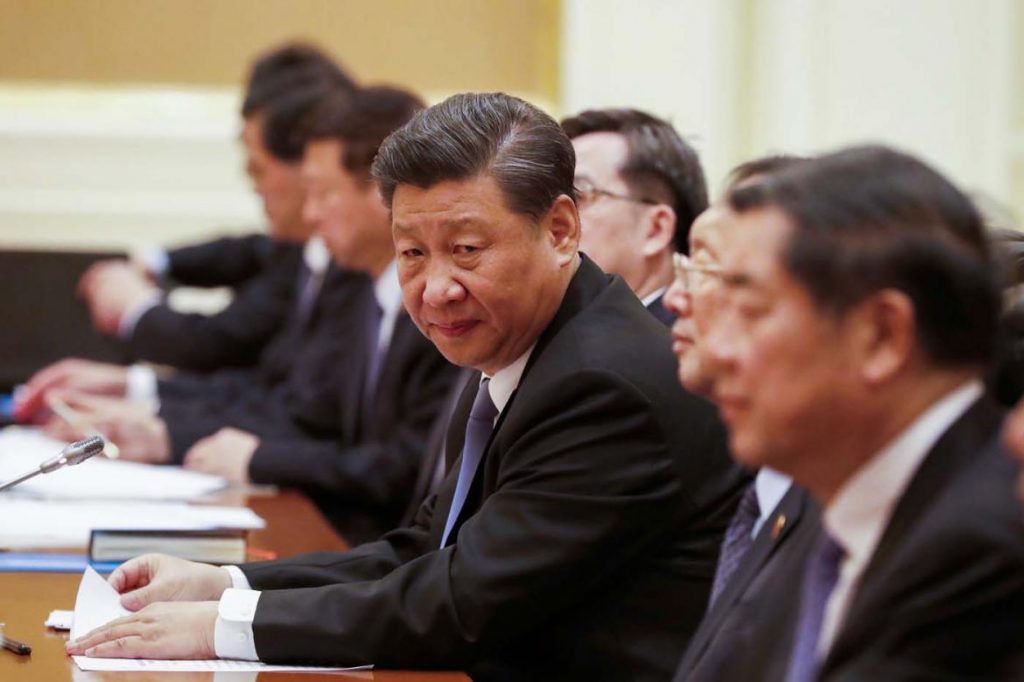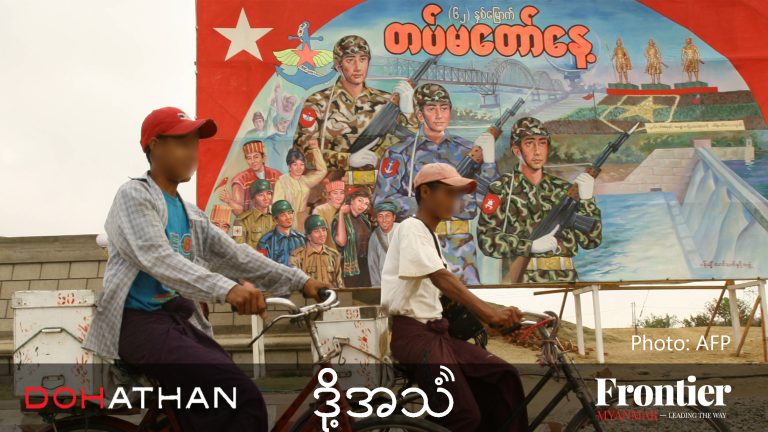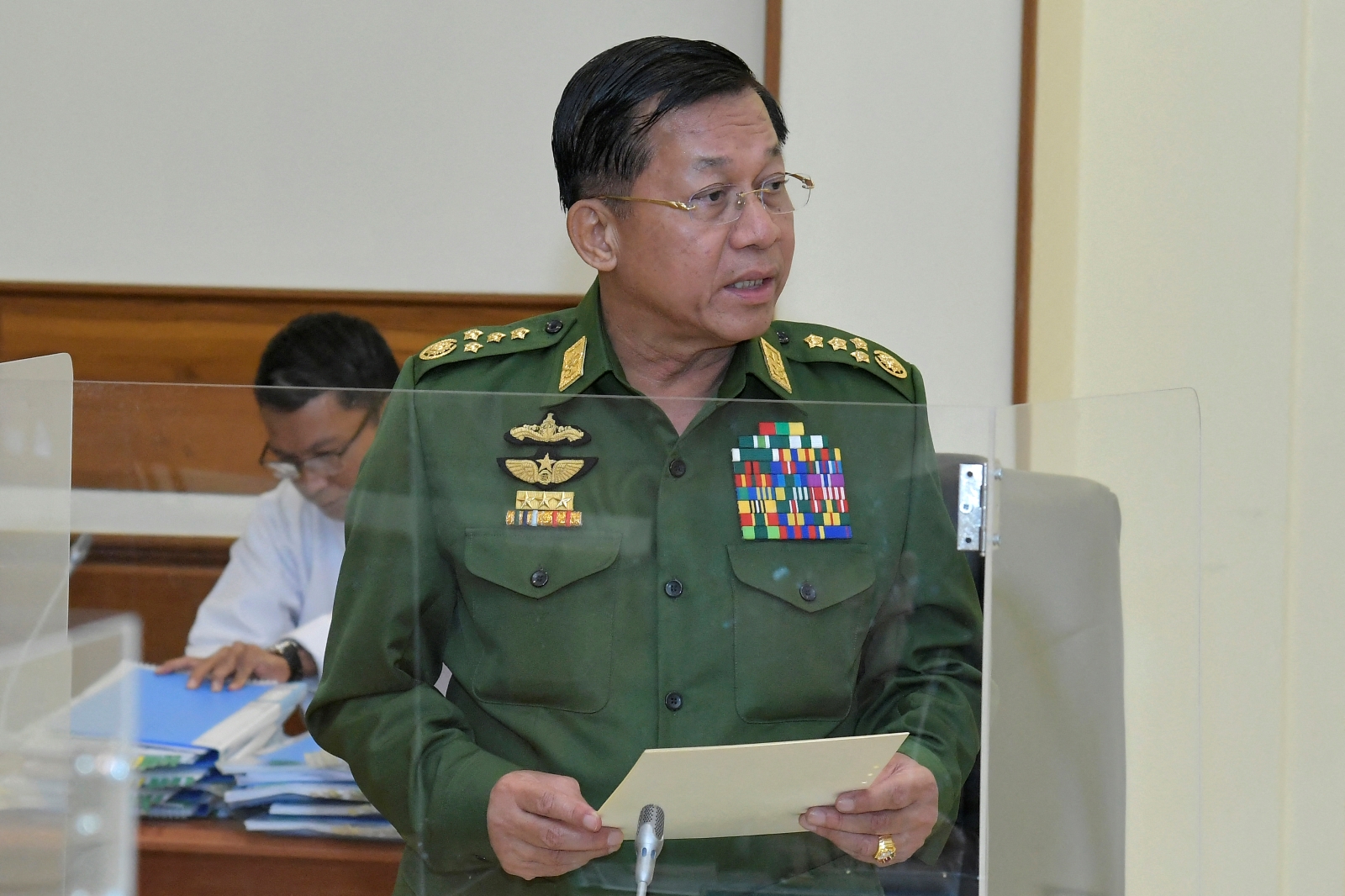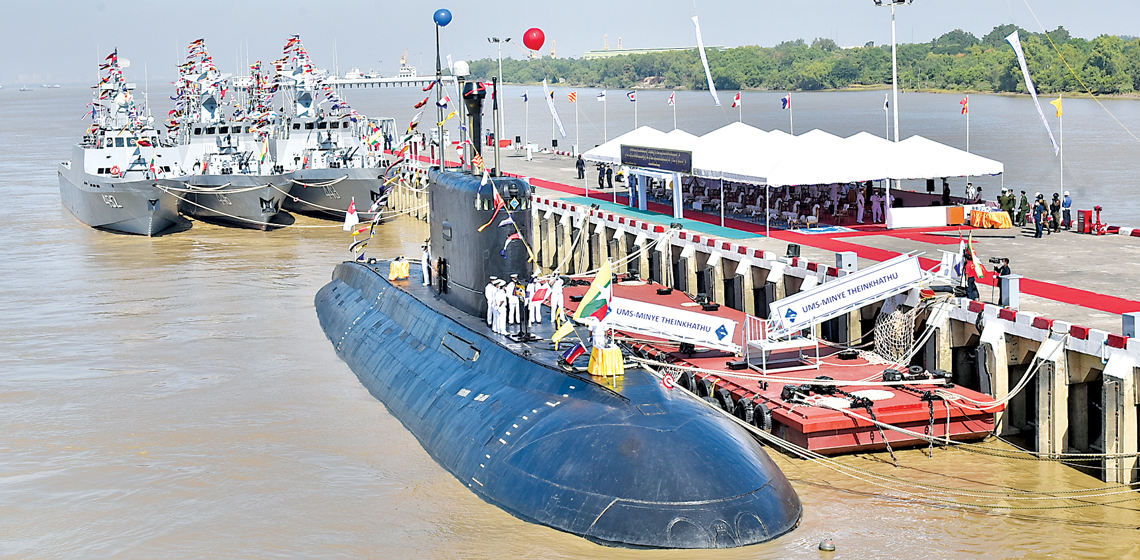Continued mistrust of China – including from the Tatmadaw – ensured that there was little significant progress during President Xi Jinping’s recent visit to Myanmar.
By SITHU AUNG MYINT | FRONTIER
On January 17, Xi Jinping became the first Chinese president to travel to Myanmar in 19 years when he paid a two-day state visit. Although Xi visited Myanmar in 2009, it was the first time he had travelled here as president.
The importance of the visit was heightened by the fact that the two countries are marking the 70th anniversary of diplomatic relations this year – newly independent Burma was the first non-communist country to recognise the People’s Republic of China.
During his visit Xi met top Myanmar officials including President U Win Myint, State Counsellor Daw Aung San Suu Kyi and Commander-in-Chief Senior General Min Aung Hlaing, and attended signing ceremonies for a number of agreements and memoranda of understanding.
But did China gain what it expected from the visit? And what does it mean for China-Myanmar relations?
Support more independent journalism like this. Sign up to be a Frontier member.
One of the main focuses of the visit was the economic relationship.
China wants the big projects that are included in the China-Myanmar Economic Corridor, which is part of China’s Belt and Road Initiative, to be implemented as soon as possible.
These projects include the Kyaukphyu deep water port and Special Economic Zone, a railway and highway that will connect Kunming in Yunnan Province with Kyaukphyu via Mandalay, the New Yangon City project and economic cooperation zones along the border.
The Kyaukphyu project, and the highway and railway that link to it, pre-date BRI and reflect China’s long-standing ambition to gain direct access to the Indian Ocean.
These large projects included in CMEC will cost many billions of dollars to develop. According to the initial proposal from the Chinese side, Kyaukphyu would cost more than US$7 billion, the Muse-Mandalay section of the railway almost $9 billion and the New Yangon City over $2 billion. There are also other proposed projects that will require billions in investment as well.
The main problem in regards to these projects is that Myanmar cannot afford to invest the money required to develop them.
Of course, it could take loans from China but it would then have to pay interest on them. The government is very wary of falling into a debt trap, and has been drawing lessons from the experiences of countries like Sri Lanka.
The position of the current government led by Daw Aung San Suu Kyi is that it fully supports BRI, but it will only carry out the projects on Myanmar soil if they bring benefits to the Myanmar people.
The projects need to prioritise national development, not damage the environment and support the social development of the people, the state counsellor said during Xi’s visit.
As a result, there were few agreements and pacts related to large investments signed during Xi’s visit.
The only major investment agreements signed were related to Kyaukphyu, which has been scaled back to $1.3 billion at the same time as Myanmar’s stake has increased from 15 percent to 30pc.
The feasibility study on the Muse-Mandalay Railway project conducted by the Chinese side was transferred to the Myanmar side during the trip. Myanmar did not promise to implement the project, however.
Progress at New Yangon City has been relatively slow, too. A Chinese company has conducted a survey, but construction has not yet begun.
China is unlikely to be satisfied by the situation. Although Xi urged both sides to accelerate progress on CMEC, he seemed unable move the projects forward in bilateral talks during the visit.
There was more progress on the political front, where Xi was able to reach an agreement to define the bilateral relationship as a “Sino-Myanmar Community of Common Destiny”, an upgrade on the “comprehensive strategic cooperative partnership” agreed in 2011.
Most politicians in Myanmar are unfamiliar with the “community of common destiny” concept, which was unveiled in 2012 by Mr Hu Jintao, who would hand over the presidency to Xi the following year.
In a joint statement during the visit, Myanmar said it supports not only the One-China policy but also Chinese attempts to resolve issues relating to Taiwan, Tibet and Xinjiang. China, meanwhile, said that it supports Myanmar’s attempt to resolve the issues relating to Rakhine State.
Xi also promised that China will provide $570 million in development assistance to Myanmar over the coming three years. While it sounds impressive, it’s not actually that much when you consider what some other countries provide.
And then there’s the relationship with the military. Xi met Snr Gen Min Aung Hlaing and they apparently discussed ethnic armed groups based along the China border. The Tatmadaw-owned Myawady newspaper reported that Xi said his government would not allow any organisations to use Chinese soil in order to harm Myanmar’s interests. He also insisted that China did not provide ethnic armed groups in Myanmar with any arms, the paper reported.
Although China-Myanmar relations improved under the military regime led by Senior General Than Shwe, they deteriorated under the U Thein Sein government after he decided to suspend the Myitsone Dam project in 2011 and tried to build better relations with Western countries.
Later, Western countries lifted sanctions, forgave debts and accelerated aid. Prime ministers and presidents came to visit, including Barack Obama – twice.
Then, in 2015, ethnic Kokang rebels from the Myanmar National Democratic Alliance Army entered Kokang territory in eastern Shan State and engaged in heavy fighting with the Tatmadaw. Many Tatmadaw soldiers died and the Tatmadaw has always believed that the rebels used Chinese soil to launch their attack.
Since then, the Tatmadaw has harboured doubts over China. Xi’s visit was not able to build the relationship enough to overcome these doubts.
Overall, except for securing an agreement to build a community of common destiny, Xi was unable to deliver any significant results for China – reflecting the doubts and mistrust that the Myanmar government and Myanmar people have towards the country.







